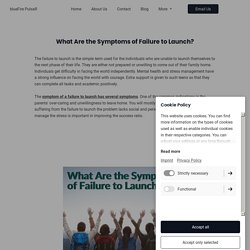

Bluefire Pulsar
PulsaR Wilderness Therapy supports growing adults and their families to overcome difficulties that restrict their potential. We assist young adults to step out of their comfort zone, improve their self-esteem, and help our customers increase their self-confidence by self-success. Our adventure-based therapy helps create positive developments and changes through action and adventure.
Healing Trauma in Wilderness. Wilderness Therapy Young Adults. Physical Effects of Stress in Teens. The Connection Between Depression & Substance Abuse. Healing Trauma In Wilderness. Wilderness Therapy Program for Teens. How to Handle Angry and Moody Teens. Adventure Therapy for Young Adults. Facts about Wilderness Therapy.
Why Young Adult Wilderness. Why Young Adult Wilderness. Why Young Adult Wilderness. What Are the Symptoms of Failure to Launch? Here we are providing some of the symptoms that are mostly identified in the individuals that are facing the failure to launch problem.

Lack of motivation The individuals lack the right motivation that is required for overcoming any situation. They get low in every situation and assume that they can not do anything. They are not good for anything. They always consider negative points in every object and person. Inconsistent or poor grades The young adults do not put their complete effort and performance into their academics with such type of problem. Social skill deficits/social isolation Individuals lack social skills and find themselves alone in social places. Gaming addiction Adults keep them busy by playing the game. Financial dependency Such adults remain financially dependent on their parents.
Poor problem-solving skills They do not show any active participation in doing any task. FACTS YOU SHOULD KNOW ABOUT WILDERNESS THERAPY - What are the Signs that Indicate Troubled Teen Need Help? When a teen is in trouble, he shows some of the signs that give the idea that he or she needs proper care and help to overcome such situations.

Here we are describing some of the signs with which you can get an idea about the troubled teens. Spending time with negative peers The association or company of individuals has a lot of effects on individuals. They start doing the same thing that their friends or peers are doing. The peers who are involved in the negative work should also encourage the other to do the same. Starting of intake of alcohol The troubled teens start the intake of the alcohol to be stress-free, but it is not good for their health and illegal too.
Symptoms of depression Sign of depression is the most common and usual indication that your teen is in trouble. Remaining far from the friends and family They love to remain self-isolated. Use of drugs You should watch out for signs that your child is using drugs. Frequent angry outbursts Author's Bio: Environment affects teens mental health. Change for Struggling Young Adults Starts at PulsaR. Different Types of Mental Health Treatment for Depression and Anxiety. Adventure Therapy to Overcome Fear - Role of Wilderness Therapy in Experiencing Nature Values. The adventure therapy program has become prevalent in current time.

The program helps in grappling with mental health, emotional, behavioural, and developmental issues. The individual experiences the best feeling with such type of therapy. Numerous benefits are delivered with such type of treatment. Here we are describing a few of them. It helps young adults to come out of the toxic environment. The young adults panic in every situation and they get stressed with that. Nature works as the healing tool for young adults. Living in the lap of nature helps a lot in getting a relaxed and stress-free feeling. Encourage and boost the skills to take responsibilities. The tasks at the wilderness therapy are designed in such a manner so that participants can handle all the situations with a positive attitude and increase their skills in handling the responsibilities with patience.
Get connected with other peers emotionally. Like this: Like Loading... How to Make Friends as a Young Adult. When we are little kids, making a new friend is as easy as going up to someone our size on the playground and asking them to play.

As we get older, friendships are often built into homeroom classes and extracurricular activities. But as we continue to get older, making new friends begins to take more work. Peak Experience During Adventure Therapy. Wilderness Therapy for Struggling teens. We all expect children to make mistakes.

It’s a part of the learning process as they discover more of the world around them. There’s even a Daniel Tiger song that says, “It’s okay to make mistakes. Try to fix them and learn from them, too.” So if we know that mistakes occur with children, why is it so difficult for us to move past our mistakes as adults? And what happens when we are focused on our past mistakes that we can’t move on?
Failure to Launch Many of us are familiar with the term: “failure to launch”. Young adults who have made mistakes in the past, perhaps mistakes that have caused them to drop out of school or lose their job, can feel immobilized by the fear that they will “fail” again. Overcoming Past Mistakes. Stop Mental Health Stigma. How often do we hear things like: “Oh, I’m so OCD!

I line my pens up by color.” Or “My team lost last night and I’m so depressed!”. Mental health diagnoses are often thrown around as common vernacular, but these are real issues that affect people in very real ways. Because of that misuse of terminology and the misconceptions that commonly surround mental health, many people who struggle with mental health issues are afraid to address the issue.
It is important that people with mental health struggles understand that their issues are nothing to be ashamed of and through talking about it, we can start to shine light onto the reality of mental health. Addressing the Stigma When people are afraid of speaking about their mental health they may avoid addressing the topic with family or friends or refuse to see a mental health professional for an official diagnosis.
Other people’s judgments almost always stem from a lack of understanding rather than information based on facts. Defiant Teenager Learns Through Wilderness Therapy. Failure To Launch Programs. Ways to handle Mood Swings in teenagers. Wilderness Therapy for Troubled Young Adults. Boot camp program does not offer success long term. Benefits of the transitional living housing. Mental Health Outdoor Therapy. Camps for troubled teens. Bluefire Pulsar - Adventure Therapy over traditional Wilderness Therapy.